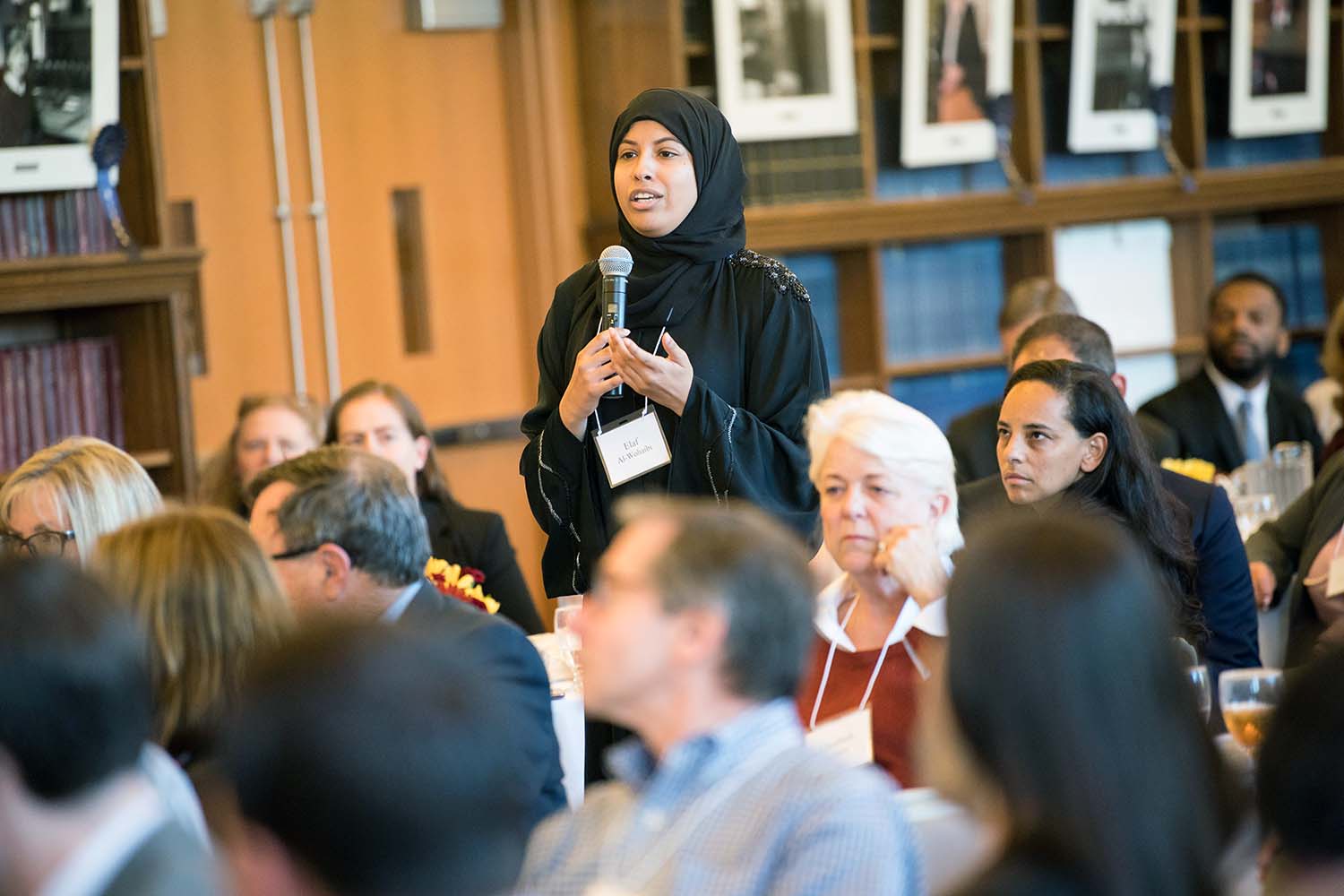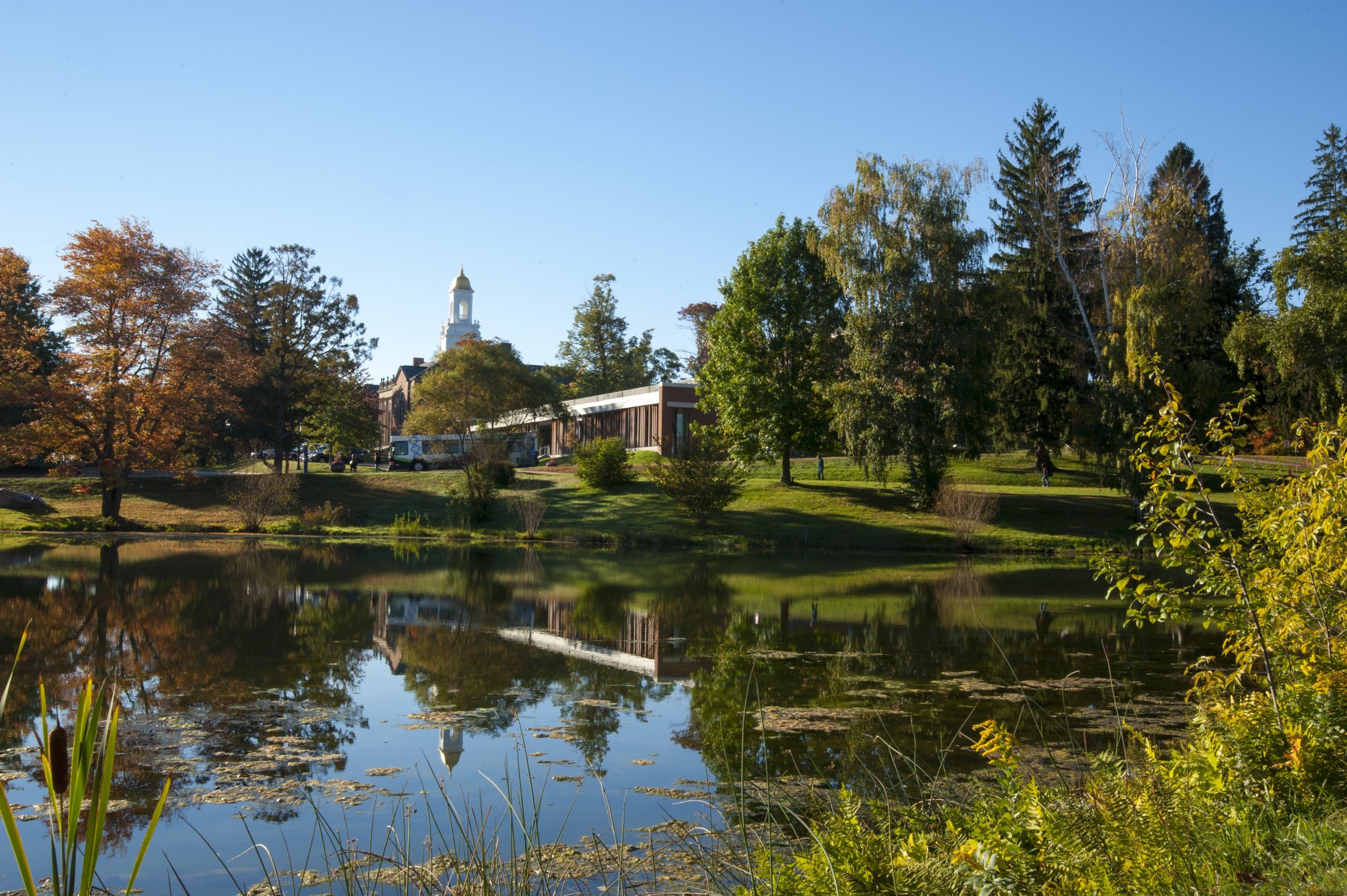When UConn Law students Emily Gait ‘18 and Stephani Roman ’18 began planning a symposium on religious freedom, they knew it was a polarizing issue across the nation.
“But where else are we going to talk about it? This is law school,” Gait said. She and Roman served as symposium editors for the Connecticut Law Review, which organized the event. More than 200 people attended, filling the Reading Room in William F. Starr Hall on Oct. 20, 2017.
The symposium, entitled Religious Freedom: Liberty, Legislation and Litigation, focused on controversies in recent years, including litigation that has reached the U.S. Supreme Court. Members of four panels dissected the aftermath of decisions in Obergefell v. Hodges and Burwell vs. Hobby Lobby, which pitted religious groups against advocates for the LGBTQ community and women’s reproductive rights.
The cases are recent but the conflict is not, said University of Texas Law Professor Lawrence Sager, the keynote speaker. “Every step in our nation’s equal membership has been met with dissent,” he said.
The symposium brought together clergy, scholars and policymakers from around the country to discuss the issues. Connecticut Gov. Dannel P. Malloy spoke about his own personal views and the state’s anti-discrimination laws, which include protection against discrimination based on gender identity.
“Discrimination has no place in our society,” Malloy said. “I believe that we as citizens of the U.S. have an obligation to stand for all our citizens.”
For religious leaders, however, there are complexities. Rabbi Bruce Alpert of the Beth Israel Synagogue in Wallingford, speaking on a panel of religious leaders, said most of his congregants support marriage rights for same-sex couples. But “in any given moment you are going to have people in your congregation on both sides.”
Other panels addressed Connecticut’s legislative initiatives, federalism and religious liberty, and federal and state protection for corporate religious liberty, including the Masterpiece Cakeshop v Colorado case, which the U.S. Supreme Court will hear on Dec. 5.
Aaron Frankel ’18, one of many UConn Law students attending the symposium, said the conversation has national relevance. “I’m happy I’m being given the tools to think about this,” he said.
Dean Timothy Fisher said the symposium furthered the law school’s mission to explore “the intersection between the rule of law and public policy” and credited Gait and Roman with “predicting so precisely the perfect moment for this conference.”



